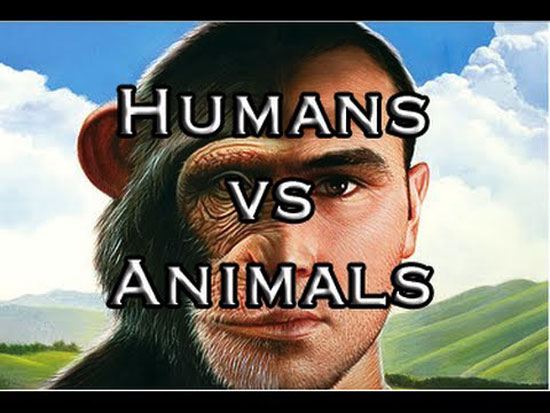Both evolutionists and religionists agree there is “something” about mankind that differs from animals. Each offers explanations, certain the other side is wrong.
How can we know which is correct?
What is the human mind? How does it relate to the brain? Why do we not see animals with minds? Most people do not understand the plain answers that have been available for thousands of years.
The argument can be summarized as the “mind-body problem.” It has been recognized that the physical characteristics of the human brain do not warrant the extreme creative and processing power that defines human ingenuity.
The answer is either physical or spiritual in nature—it can be explained no other way.
Unique to Humans
Consider just a few of the qualities man possesses that are unique among all living creatures. Many attributes are so common and assumed that few give them much thought. Yet it should become clear how special human beings are.
Ask yourself: Why does man have so many distinctive characteristics?
• Humor: No other creature is able to appreciate, create and express humor. Not only does it require creativity, but humor also requires the ability to detach oneself from one’s surroundings to see the odd, surreal or ironic.
• Appreciation of beauty: Man is able to appreciate all kinds of beauty. This can be as simple as a sunset, a work of art, or the intricate design of a flower.
• Self-consciousness: Beyond a simple recognition of self (as seen in a few animals), man can step back and become a spectator, critic or admirer of the world around him. He is able to see his place in the greater picture and analyze what needs to be done to affect his role.
• Awareness of death: While animals have a survival instinct, man is able to consider that he will one day die. Aware that his days will not last forever, he has a deep respect of his mortality. In fact, nearly all cultures perform some form of funeral ritual. This is not found in the animal world.
• Understanding time: Animals are only able to relate time to themselves; they have no ability of relating time to third parties. Humans can wonder, speculate and search the annals of history for lessons, and apply those lessons to goals far into the future.
• Connections between words: While animals can understand simple words or tones, they do not comprehend syntax or communicate in complex sentences. Human beings have created hundreds of languages (and thousands of dialects), even though they are born without any way in which to communicate.
• Meaning of life: The simple act of asking about life’s meaning and purpose makes man unique. No animal contemplates its reason for living—nor would it be willing to live or die for specific values and ideals.
• Malleability: Humanity is able to adapt to its surroundings. We wear clothes, build shelters or modify our environment to suit our needs.
• Lack of harmony with nature: When left to its own devices, nature will reach balance and harmony. Only man disrupts that natural balance: deforestation, changing the course of rivers, pollution, over mining for resources, etc.
• A sense of morality: Animals always take the path of least resistance. They do not have a conscience or sense of right and wrong. On the other hand, mankind will go so far as to control his thoughts based on what he considers right or wrong.
• Character: This is the ability to know right from wrong, and turn from the wrong and do what is right, even in the face of pressures and temptations. The desire to build character is only found in man.
• Free moral agency: Unlike animals, man can deviate from his course of thinking and living however he sees fit. Animals react through instinct—programming.
• Capacity for wisdom: Without the ability to place themselves in time, animals are unable to weigh situations with previous experiences. While animals are able to develop behavioral patterns based on positive or negative stimulation, they are completely unable to analyze actions before they are performed. This ability, known as wisdom, is unique to human beings.
• Desire for worship: No matter what part of the world or his culture, man exhibits a desire to seek, follow and worship a higher power. Animals do not.
• Love: While some animals form lifelong relationships for the purpose of reproduction, none exhibit a parallel with the human characteristics of love, in which a couple shares experiences, goals, dreams, hopes and aspirations.
The mind-body problem is a towering issue—one that dramatically separates us from the animal world. There must be a reason for why the human mind is different from the animal brain.
Evolutionary Answer?
The mind is one subject most evolutionists will not engage. Simply put, the physical differences between the human brain and that of animals are insufficient to explain the “horsepower” described above. Three aspects of the human brain demonstrate this point.
• Weight: Human beings do not have the heaviest brains in overall weight, or even weight in proportion to their bodies.
• Anatomy: Correlations differ between man’s brain and that of animals.
• Cerebral Cortex: The nerve center of the human brain is only slightly more complex than that of animals.
No physiological explanation exists for man’s mind! Biologists have no irrefutable evolutionary evidence. Psychologists are stupefied by the human brain. And evolutionists are left with only one answer: There is no scientific answer to the mind-body problem!
An Immortal Soul
If the differences between animals and human beings cannot be explained by physical means, we must look for a spiritual explanation. Most professing Christians would quickly agree there must be a spiritual aspect to the human condition. The most common attempt to offer explanation considers the non-physical component an immortal soul.



